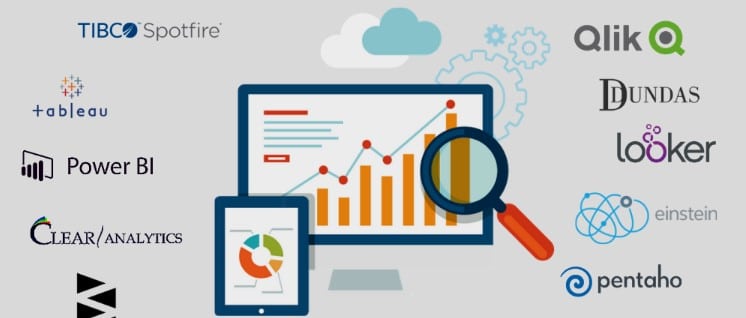Business Intelligence (BI) tools are software applications that help businesses to collect, analyze, and present data in a way that provides actionable insights. BI tools have become essential for organizations looking to make data-driven decisions and gain a competitive advantage. In this article, we will compare some of the best BI tools available in the market today, looking at their features, benefits, and costs.
Features of Business Intelligence Tools
There are several features that a good BI tool should possess. These include:
- Data Integration: A BI tool should be able to integrate data from multiple sources, including databases, spreadsheets, and cloud-based applications.
- Data Visualization: The ability to create visually appealing and interactive dashboards, charts, and reports that make it easy to analyze data.
- Predictive Analytics: The ability to use statistical algorithms to identify patterns and trends in data, and make predictions about future outcomes.
- Collaboration: The ability to share data and insights with other team members, allowing for collaboration and decision-making.
Benefits of Business Intelligence Tools
Business Intelligence tools offer several benefits to organizations, including:
- Improved Decision Making: BI tools provide organizations with the data and insights needed to make informed decisions, leading to better outcomes.
- Increased Efficiency: BI tools automate data collection and analysis, freeing up time for employees to focus on other tasks.
- Competitive Advantage: By using BI tools, organizations can gain insights into their competitors and industry trends, allowing them to stay ahead of the curve.
- Improved Customer Experience: BI tools help organizations better understand their customers’ needs and preferences, leading to more personalized and effective interactions.
Comparison of Business Intelligence Tools
- Tableau: Tableau is a data visualization tool that offers a wide range of features, including data blending, forecasting, and real-time collaboration. Tableau is known for its ease of use and user-friendly interface, making it accessible to users with varying levels of technical expertise.
- Microsoft Power BI: Microsoft Power BI is a cloud-based BI tool that offers robust data integration, visualization, and collaboration capabilities. Power BI is a popular choice for organizations already using Microsoft products, as it integrates seamlessly with other Microsoft applications.
- QlikView: QlikView is a self-service BI tool that offers real-time data analysis, reporting, and predictive analytics capabilities. QlikView is known for its fast and efficient data processing, making it a good choice for organizations dealing with large data volumes.
Cost Comparison
The cost of BI tools varies depending on the features and capabilities offered. Tableau offers several pricing options, including a free version with limited features, a professional version for $70 per user per month, and an enterprise version with custom pricing. Microsoft Power BI offers a free version with limited features, a pro version for $9.99 per user per month, and an enterprise version with custom pricing. QlikView offers a free trial, and pricing is available on request.
Conclusion
Business Intelligence tools are essential for organizations looking to make data-driven decisions and gain a competitive advantage. Tableau, Microsoft Power BI, and QlikView are among the best BI tools available in the market today, each offering unique features and benefits. When selecting a BI tool, it’s important to consider the features, benefits, and costs to ensure you choose a tool that meets your organization’s needs.
Ultimately, the best BI tool for your organization will depend on your specific needs and budget. When evaluating BI tools, consider factors such as data integration capabilities, data visualization options, predictive analytics features, collaboration capabilities, and pricing.
By selecting the right BI tool, you can empower your organization to make informed decisions based on data-driven insights. With the right tools and resources at your disposal, you can stay ahead of the competition and drive growth and success for your business.
Investing in a good BI tool is a long-term strategy that can help your organization to achieve its goals and objectives. Whether you choose Tableau, Microsoft Power BI, or QlikView, you can be confident that you are selecting a high-quality tool that will provide value to your organization for years to come.
Read More :
